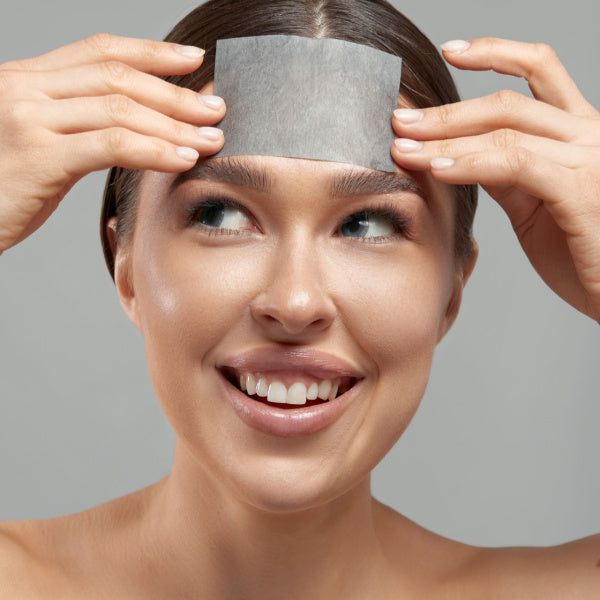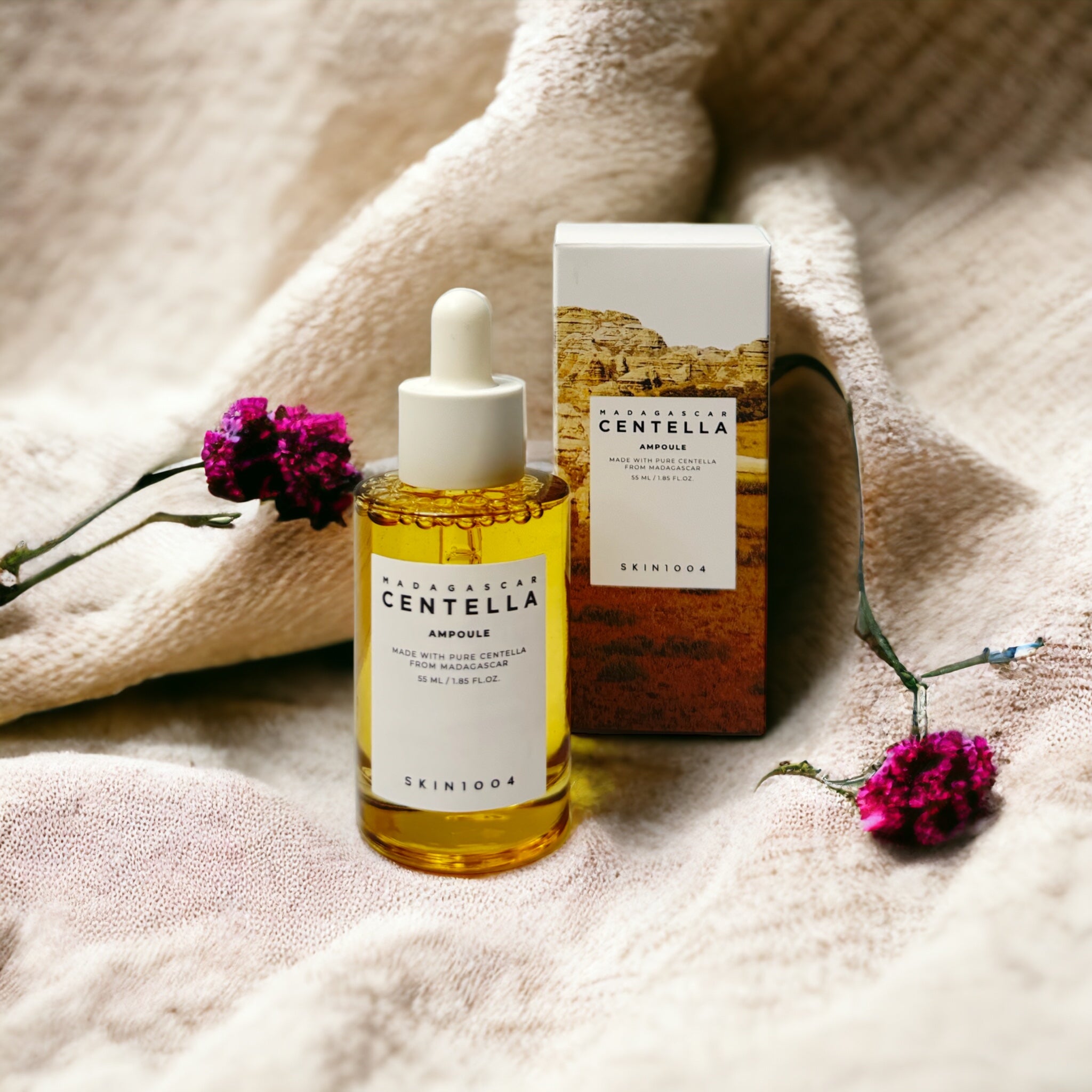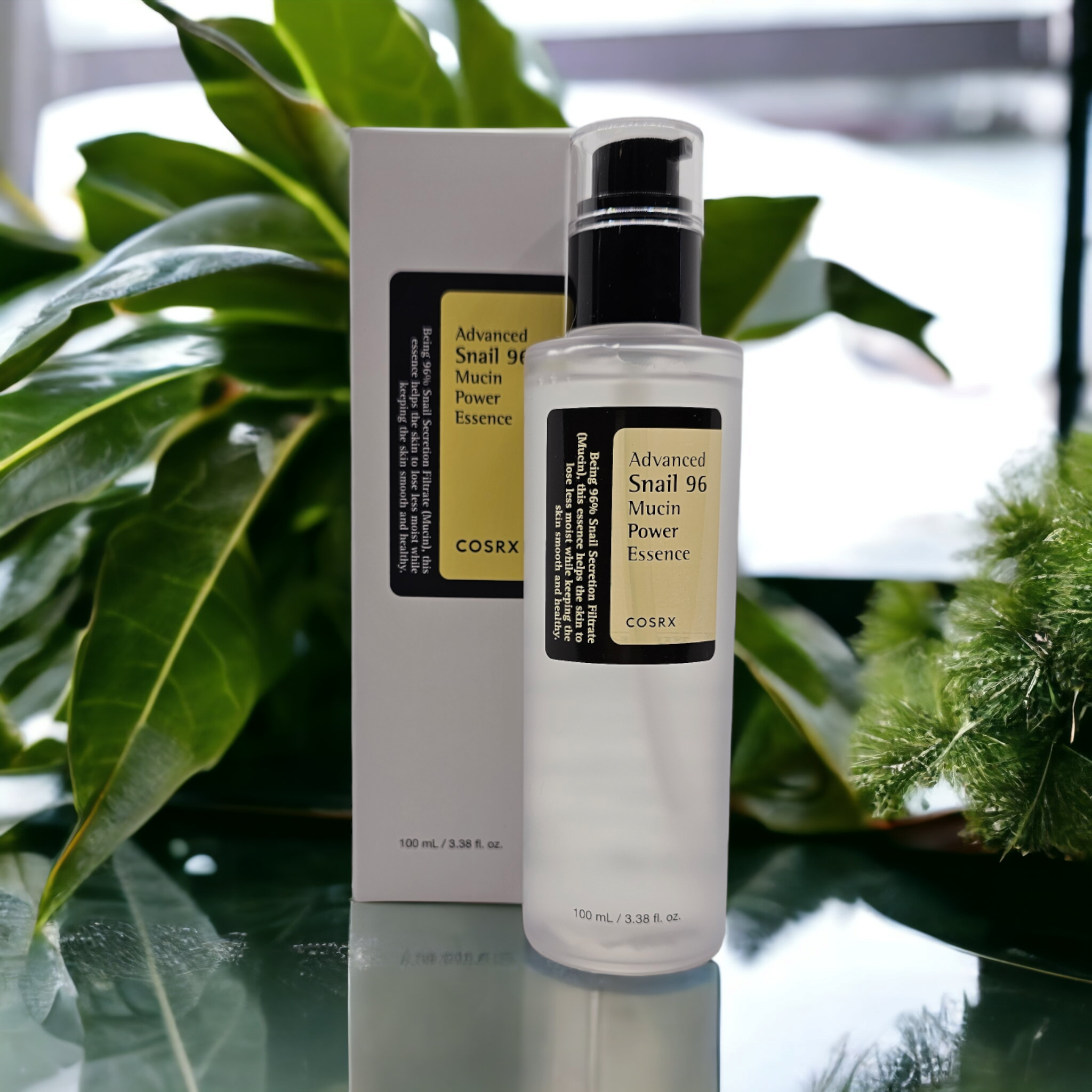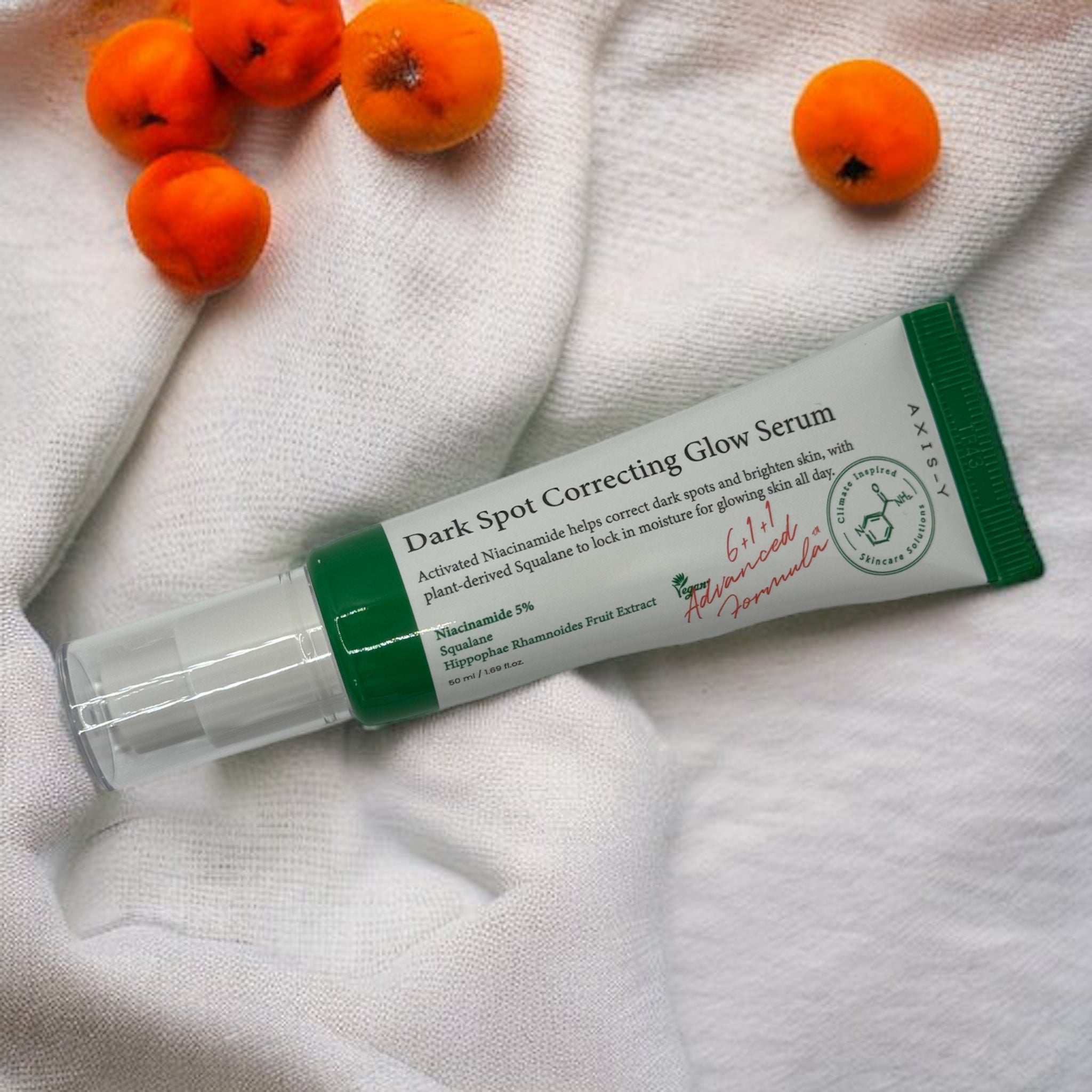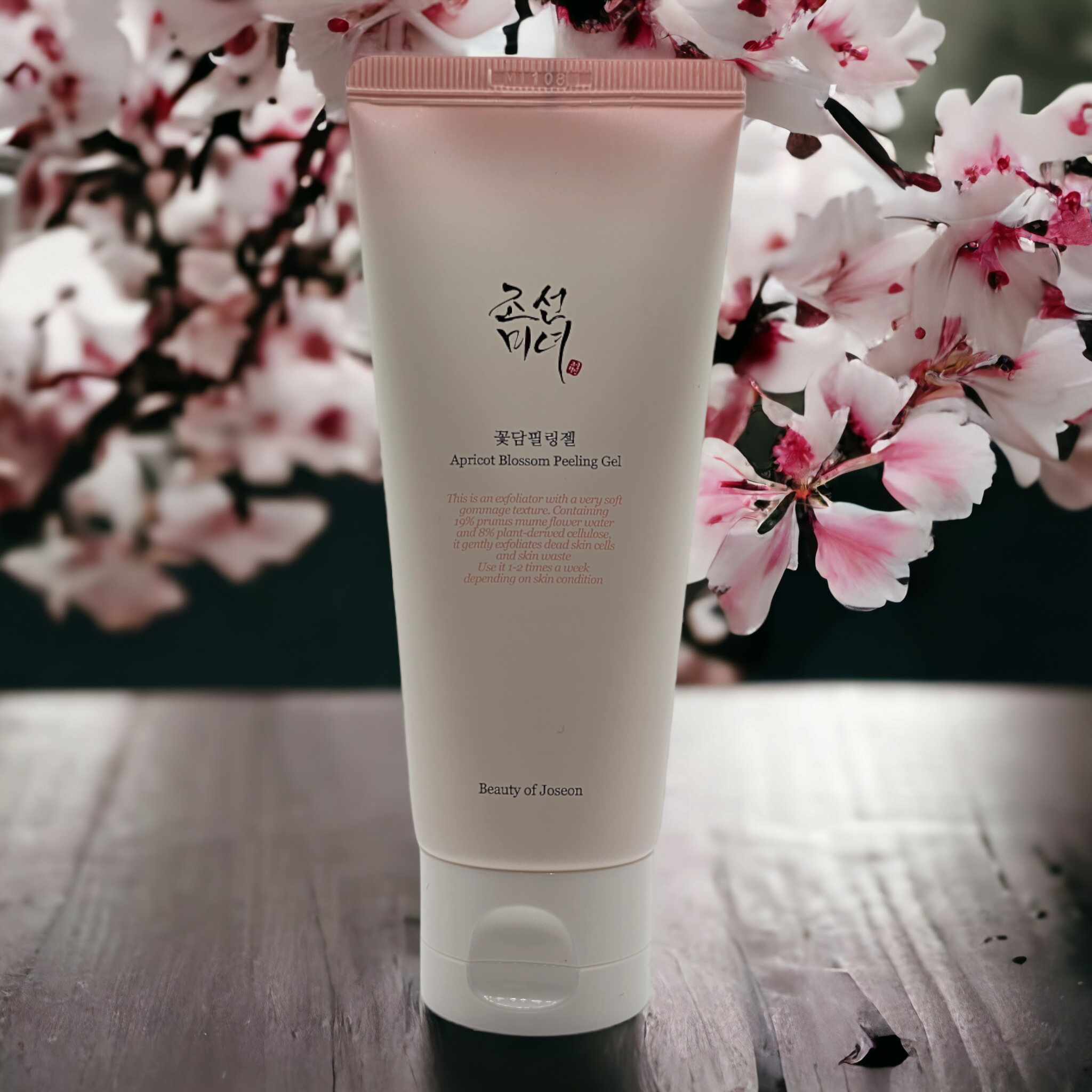What Happens When You Mix Vitamin C with Retinol?
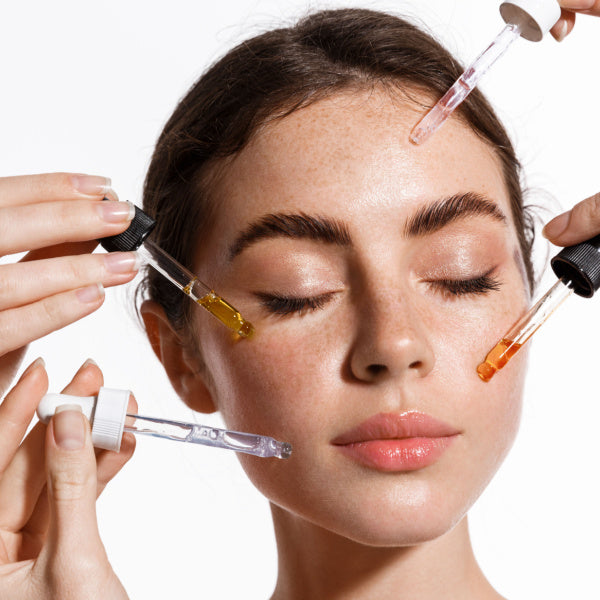
Navigating the complicated world of skincare can be a daunting task. From retinol to vitamin C, many questions about which ingredients to use and whether they should be used together. Many people have experimented with combining potent skincare ingredients like retinol and vitamin C in the quest for radiant, youthful skin. But what happens when you mix these two powerful agents? Let's find out.
Understanding the Power of Vitamin C and Retinol
To gain insight into the potential effects of combining retinol and vitamin C, it's essential to first grasp the individual benefits they offer.
Retinol, a powerful by-product of Vitamin A, holds a firm place in skincare routines due to its impressive anti-ageing properties. This ingredient accelerates cell turnover, unclogs pores, and prompts collagen production - key factors in achieving a younger-looking, brighter complexion.

Conversely, Vitamin C, a robust antioxidant, is hailed for its protective qualities, shielding the skin from harmful free radicals and UV damage. Just like retinol, it also boosts collagen production and helps even out skin tone, adding to its appeal in promoting a radiant complexion. While both ingredients can provide significant benefits on their own, mixing them can lead to unexpected outcomes, as we'll explore in the following sections.

The Unsettling Consequence of Mixing Retinol and Vitamin C
Despite their prowess, the amalgamation of retinol and vitamin C might not yield the desired results due to a chemical discord. This mishmash has the potential to disrupt the natural pH balance of your skin, leading to a decrease in the effectiveness of both components. To function optimally, retinol requires a slightly acidic environment, ideally with a pH value of between 5.5-6. On the other hand, vitamin C thrives in a more acidic milieu, favouring a pH level of around 3.5. Their combined usage could potentially dilute the potency of both, rendering them less beneficial. Hence, this intermingling could prove counterproductive, as the intended benefits might be diminished.
The Acidic Nature of Vitamin C
Ascorbic acid, more commonly referred to as vitamin C, is renowned for its stellar performance in an acidic environment, boasting a low pH value. Its acid-loving nature amplifies its potency, making it an effective weapon against skin-damaging free radicals, whilst also fuelling the production of collagen. Despite its impressive credentials, the acidic qualities of vitamin C can sometimes pose a challenge. When mixed with other formidable skincare ingredients, such as retinol, it can prove too vigorous for your skin to handle comfortably. Thus, while the chemistry of vitamin C may be fantastic in isolation, its acidic personality can create undesirable effects when combined with other powerful substances in your skincare routine. Understanding this, and being mindful of how you pair vitamin C with other elements in your regimen, is a key step in ensuring your skin derives maximum benefit without undue distress.
The Sensitivity of Retinol
Renowned for its skin-rejuvenating properties, retinol, unfortunately, has a temperamental disposition when faced with pH and sunlight. This sensitivity may undermine its efficacy when mixed with acidic skincare ingredients such as vitamin C. Whilst retinol is revered for accelerating cell turnover and enhancing collagen production, it can also be quite drying and potentially irritating to some skin types. The conundrum is intensified when it is combined with vitamin C, which is acidic. The combined potency of these two skincare powerhouses could lead to undesirable symptoms such as skin redness, peeling and discomfort. It's vital, therefore, to consider the inherent traits of these ingredients before deciding to include them simultaneously in your skincare regimen. Whilst their advantages are notable, their combined use demands a nuanced understanding to avoid potential skin distress.
A Potential Risk for Skin Irritation
In addition to the aforementioned potential loss in effectiveness, the simultaneous use of retinol and vitamin C could trigger unpleasant skin reactions. Both retinol and vitamin C are highly active compounds, each capable of causing some degree of skin irritation on their own. This is particularly the case for individuals with delicate or sensitive skin types. The intermixing of these ingredients could amplify their individual irritative properties, leading to undesirable effects such as redness, peeling, or even skin burns in more severe instances. As a result of these potential complications, skincare experts commonly advise against combining these two powerful skincare components. Thus, it is crucial to consider your skin's tolerance and sensitivities before incorporating these potent ingredients into your regimen.

Navigating the Compromise: Alternate Use of Vitamin C and Retinol
Whilst it is not advisable to use vitamin C and retinol simultaneously, it doesn't mean you need to sacrifice the benefits of either. You can enjoy the potent effects of both these ingredients by incorporating them into your skincare routine separately. A widely accepted approach is to apply vitamin C in the morning, which allows it to shield your skin from free radicals and UV damage throughout the day. In contrast, retinol can be used in the evening, given that it may increase your skin's sensitivity to sunlight. This way, you ensure each ingredient has its dedicated time to work optimally on your skin, without interfering with the other's efficacy. It's about balancing your skincare ingredients in a way that allows them to work together harmoniously, rather than in conflict. So, whilst retinol and vitamin C may not be the best of friends when combined, they can certainly be allies when used at different times of the day.
Getting the Most Out of Vitamin C and Retinol
Maximising the benefits of vitamin C and retinol in your skincare regime relies heavily on selecting the appropriate form and concentration. When searching for products, it’s recommended to choose those with a vitamin C concentration of at least 10% for noticeable effects. For retinol, opt for products within a range of 0.25% to 1.0% to prevent overloading the skin and causing potential irritation. Regarding the form of these ingredients, L-ascorbic acid, the most potent variant of vitamin C, is highly recommended. In terms of retinol, products like serums or creams can provide deeper penetration, maximising the benefits. By taking into account these considerations, you can effectively enhance the impact of both vitamin C and retinol on your skin, pushing you a step closer towards achieving a healthier, more radiant complexion.
Glamour Glow offers some of the best Vitamin C and Retinol Serum in the market.
Vitamin C
SOME BY MI GALACTOMYCES PURE VITAMIN C GLOW SERUM
KLAIR'S FRESHLY JUICED VITAMIN DROP
SOME BY MI YUJA NIACIN 30 DAYS BLEMISH CARE SERUM
Retinol
SOME BY MI RETINOL INTENSE REACTIVATING SERUM
Optimising Your Skincare Routine
Creating an effective skincare regime is not only about the products you choose but also the order in which they are applied. Typically, the rule of thumb is to layer your products based on their texture, starting with the lightest. For instance, in the morning, a serum with Vitamin C should be layered beneath your moisturiser, allowing it to fully penetrate and defend your skin from UV damage and free radicals throughout the day.
In the evening, the procedure should follow a similar pattern. Retinol, usually found in the form of serums or creams, should precede your night cream. This allows the active ingredient to delve deeper into your skin layers, facilitating effective cell turnover and collagen production while you sleep.
A crucial factor to keep in mind, particularly when incorporating retinol into your routine, is the necessity of a broad-spectrum sunscreen. Given that retinol can increase your skin's sensitivity to sunlight, ensuring adequate protection from harmful UV rays is paramount. By diligently following these steps, you can successfully reap the benefits of both Vitamin C and retinol, without having them counteract each other's efficacy, thus paving the way for healthier, glowing skin.




